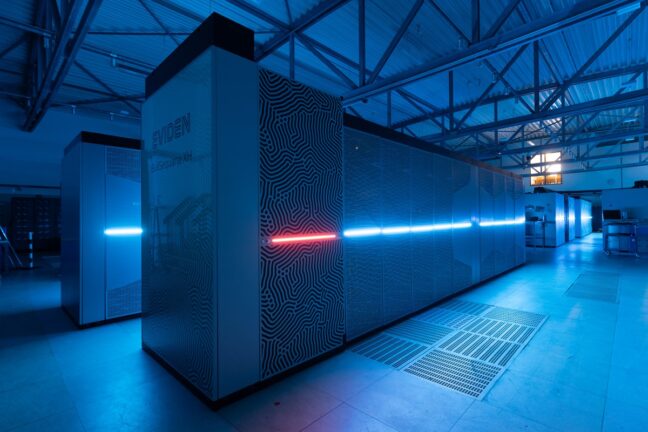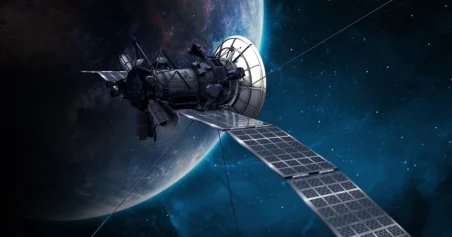The new JUPITER supercomputer has been inaugurated on Friday, September 5, by Commissioner Ekaterina Zaharieva and German Chancellor Friedrich Merz at Jülich Research Centre in Germany. It is the first European system to achieve the so-called exascale threshold, i. e. performing more than one quintillion operations per second.
JUPITER is ranked as Europe’s most powerful supercomputer and the fourth fastest worldwide. It combines unmatched performance with a strong focus on sustainability. The system runs entirely on renewable energy and features cutting-edge cooling and energy reuse, making it the world’s most energy-efficient supercomputer module. The supercomputer occupies the number‑one position on the Green500 ranking.
Better weather models and AI solutions
JUPITER cost €500m, half of which was provided by the European Commission. The other half was financed by the German federal government and the state of North Rhine-Westphalia. The supercomputer should improve weather forecasting, including extreme events such as heavy rain and storms. Researchers will now be able to run climate and weather models at kilometre‑scale resolution, enabling much more precise forecasts of extreme events.
The supercomputer will also help to study the human brain with the aim of developing new therapies. It will also support the development and deployment of AI solutions. Its capability will enable the future AI Factory (JAIF) announced in March 2025, which will train cutting-edge large language models (LLMs) for generative AI and next‑generation digital technologies.
Do not fear artificial intelligence: director
According to Astrid Lambrecht, director of the computing center in Jülich, it is currently unrealistic that artificial intelligence would take over humanity. “Large AI models fail in logical thinking,” she said. “If you ask for my personal opinion, I don’t consider it realistic in the medium term that machines will develop their own consciousness,” the scientist told the DPA news agency.
According to the recently published Top500 ranking, which includes the 500 most powerful computers in the world, two of the top ten are in Europe. In addition to JUPITER in Germany, there is also the Leonardo computer in Italy, which ranks tenth.











